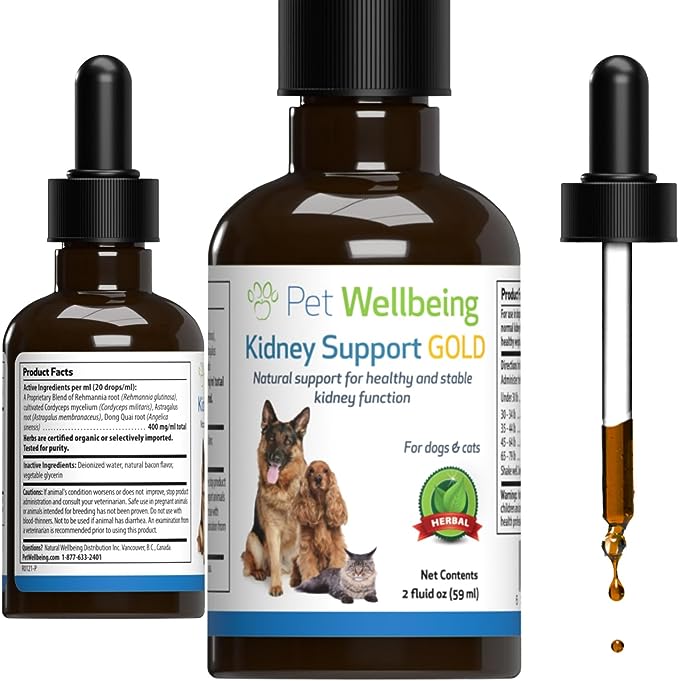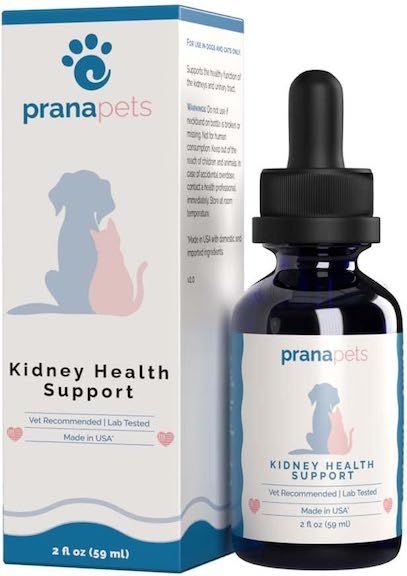Myths About Feline Kidney Disease: Separating Fact from Fiction
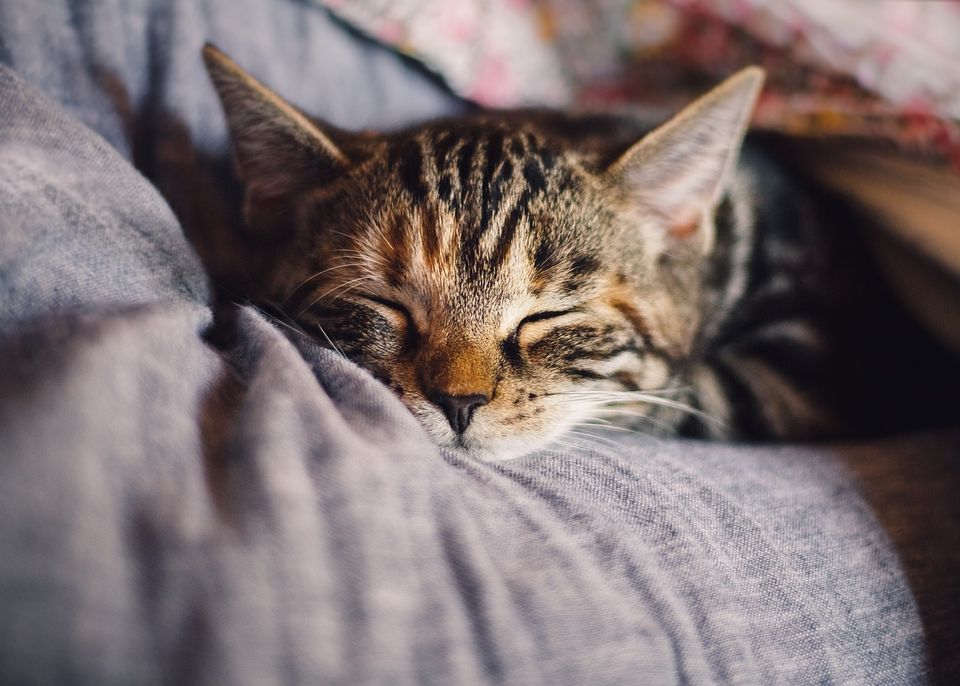
Table of Contents
- Brief Overview of Feline Kidney Disease and Its Prevalence
- Understanding Feline Kidney Disease
- Debunking Common Myths
- Best Practices for Managing Feline Kidney Disease
- Final Thoughts
- FAQs: Feline Kidney Disease
When it comes to our beloved feline companions, their health is a top priority. Feline kidney disease is a common concern among cat owners, and separating fact from fiction in this context is vital. The myths surrounding this condition can lead to misunderstandings and potentially harmful decisions. In this comprehensive guide, we'll debunk these myths and provide you with accurate, science-backed information to ensure the best possible care for your feline friend.
Feline kidney disease, also known as feline renal disease or chronic kidney disease (CKD), is a pervasive and potentially serious condition affecting cats of all ages. CKD is especially prevalent among older cats, making it crucial for pet owners to be informed about this ailment. Understanding the basics of feline kidney disease, its causes, and how to detect it early can significantly impact your cat's quality of life.
Understanding Feline Kidney Disease
What is Feline Kidney Disease?
Feline kidney disease, or CKD, is a progressive and irreversible condition that affects a cat's kidneys. The kidneys play a vital role in filtering waste and maintaining proper bodily functions. CKD gradually impairs these functions, leading to a range of health issues.
Causes and Risk Factors
Numerous factors can contribute to the development of feline kidney disease. These include genetic predispositions, age, and underlying health conditions. Understanding these causes and risk factors is essential for early intervention and management.
Stages and Symptoms
CKD is categorized into different stages, each with its own set of symptoms and implications. Recognizing these stages and associated symptoms is crucial for timely diagnosis and appropriate care.
Importance of Early Detection
Early detection of feline kidney disease can significantly improve a cat's prognosis. Regular veterinary check-ups and awareness of potential warning signs are essential for catching the disease in its early stages.
Stay tuned for the next sections as we delve deeper into debunking common myths and providing best practices for managing feline kidney disease. We're committed to equipping you with the knowledge needed to provide the best care for your feline friend.
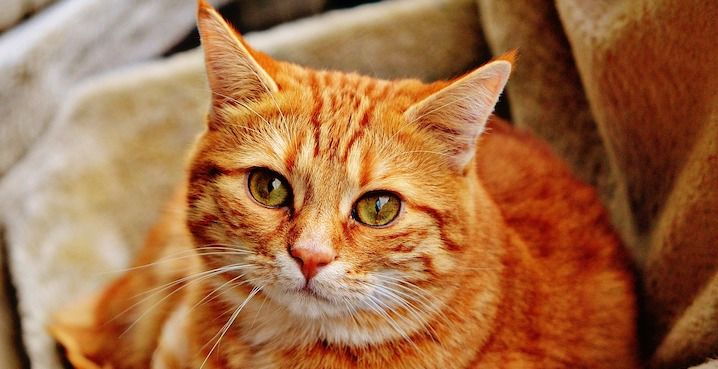
Debunking Common Myths
Myth #1: Feeding a High-Protein Diet Worsens Kidney Disease
Understanding the Myth
One prevalent misconception is that feeding a high-protein diet exacerbates feline kidney disease. The rationale behind this belief is that excessive protein places an additional burden on the kidneys.
The Reality
Contrary to this belief, restricting protein isn't the solution. In fact, a moderate amount of high-quality protein is essential for your cat's overall health. The key is to ensure that the protein comes from easily digestible sources. Consult your veterinarian for guidance on selecting an appropriate diet that supports your cat's specific needs.
Myth #2: Dry Cat Food is Better than Wet Cat Food
The Myth Debunked
Another common myth is that dry cat food is superior to wet cat food when it comes to managing kidney disease. The misconception often arises from the belief that dry food helps maintain dental health and provides better nutrition.
The Facts
In reality, wet cat food can be a better choice for cats with kidney disease. It's higher in moisture content, aiding in hydration—a critical aspect of kidney disease management. Plus, it's typically lower in phosphorus, which is beneficial for cats with compromised kidneys. Always consult your veterinarian to choose the right diet for your cat.
Myth #3: All Kidney Disease in Cats is the Same
Clarifying the Myth
Some believe that kidney disease in cats is a one-size-fits-all condition, assuming that all cases are identical in terms of progression and treatment.
The Truth
Feline kidney disease is a complex condition with varying stages and causes. It's essential to understand that each cat's experience with kidney disease is unique. Some may progress slowly, while others may deteriorate more rapidly. Tailored treatment plans and close monitoring are necessary to provide the best care for your cat.
Myth #4: Cats with Kidney Disease Should Avoid All Treats
Debunking the Treat Myth
Another misconception is that cats with kidney disease should abstain from all treats. This belief stems from concerns about ingredient content and their impact on kidney function.
Setting the Record Straight
While it's true that you should be cautious about treats, not all are off-limits. Some low-phosphorus and kidney-friendly treats are available. Always check with your veterinarian for recommendations and ensure that any treats you offer align with your cat's dietary restrictions.
Myth #5: Natural Remedies Can Cure Feline Kidney Disease
Unveiling the Natural Remedy Myth
It's common to encounter claims that natural remedies can cure feline kidney disease. These remedies may include herbs, supplements, or alternative therapies.
The Reality Check
While some natural remedies may offer supportive benefits, they are not a cure for kidney disease. This condition is typically irreversible and requires comprehensive veterinary care. Natural remedies should only be used as complementary treatments alongside conventional veterinary advice.
Debunking these myths is crucial for providing the best care for your cat. Remember that accurate information and guidance from your veterinarian are essential for managing feline kidney disease effectively. Stay tuned as we explore best practices for managing this condition in the next section.
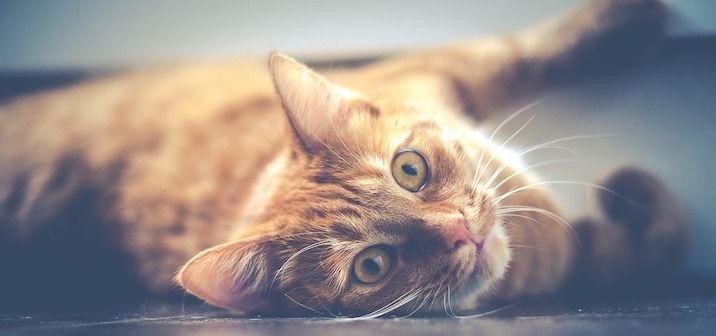
Best Practices for Managing Feline Kidney Disease
Dietary Considerations and Prescription Diets
Optimal Nutrition for Kidney Health
A crucial aspect of managing feline kidney disease is dietary considerations. Consult your veterinarian to develop a customized nutrition plan. Prescription diets formulated for kidney support can help mitigate the progression of the disease. These diets are typically lower in phosphorus and contain high-quality protein sources that are easier on the kidneys. Proper nutrition can enhance your cat's overall well-being and slow the disease's advancement.
Hydration and the Importance of Fresh Water
The Role of Hydration
Maintaining proper hydration is paramount for cats with kidney disease. Cats are often not inclined to drink water, so you must encourage them to stay hydrated. Ensure that your cat has access to fresh, clean water at all times. You can entice them with cat water fountains or moistening their food to increase water intake. Adequate hydration helps flush toxins from the body and supports kidney function.
Medications and Treatment Options
Managing Kidney Disease with Medications
In some cases, your veterinarian may prescribe medications to manage specific symptoms and slow the progression of kidney disease. Medications can include phosphate binders to reduce phosphorus levels, blood pressure medications, and erythropoietin to address anemia. Each cat's treatment plan will vary, so it's crucial to follow your veterinarian's guidance closely.
Regular Veterinary Check-ups and Monitoring
The Importance of Ongoing Care
Regular veterinary check-ups are vital for cats with kidney disease. These check-ups allow your veterinarian to monitor your cat's condition, adjust treatment plans, and catch any complications early. Blood tests, urine analysis, and blood pressure measurements may be part of the routine monitoring process. This proactive approach can help maintain your cat's quality of life.
Lifestyle Adjustments for a Cat with Kidney Disease
Enhancing Quality of Life
Cats with kidney disease may benefit from various lifestyle adjustments. Ensure your cat has a quiet and stress-free environment. Minimize exposure to toxins, including certain plants and chemicals. Consider providing cozy and easily accessible resting spots. Additionally, keep your cat mentally and physically engaged with interactive play and puzzles to maintain their overall well-being.
By following these best practices, you can provide your cat with the care and support they need to manage kidney disease effectively. Remember that every cat's condition is unique, so consult your veterinarian for tailored guidance and treatment recommendations.
Natural / Herbal Product Suggestions:

PetAlive Kidney Support - All Natural Herbal Supplement Promotes Healthy Kidney and Urinary Functioning in Cats
Final Thoughts
Dispelling Myths and Ensuring Feline Kidney Health
Key Takeaways and the Importance of Dispelling Myths
As we conclude our exploration of feline kidney disease, let's recap the essential takeaways. Myths surrounding this condition can lead to misinformation and potentially harmful decisions. We've debunked common misconceptions and emphasized the importance of evidence-based knowledge.
Remember that feeding a moderate amount of high-quality protein, providing adequate hydration through fresh water, and following prescribed diets are key to managing feline kidney disease. Every cat's experience with kidney disease is unique, and tailored treatment plans are crucial.
Consult Your Veterinarian for Accurate Information
Your Trusted Partner in Feline Health
Above all, your veterinarian is your most reliable source of information and guidance. For accurate advice and personalized care plans, consult your veterinarian. Regular check-ups, early intervention, and a proactive approach can make a significant difference in your cat's quality of life.
Feline kidney disease may present challenges, but with the right knowledge and support, you can ensure the well-being of your beloved feline companion. Stay informed, stay vigilant, and cherish the precious moments you share with your furry friend. Together, we can dispel myths and provide the best possible care for our cats with kidney disease.
FAQs: Feline Kidney Disease
What is feline kidney disease, and how common is it?
Feline kidney disease, also known as chronic kidney disease (CKD), is a progressive condition that affects a cat's kidneys. CKD is quite common in cats, especially in older felines. Studies suggest that over 30% of cats aged 15 and older may be affected by CKD to some extent.
What are the common signs of feline kidney disease?
Common signs of feline kidney disease include increased thirst and urination, weight loss, decreased appetite, vomiting, lethargy, and changes in behavior. However, these symptoms can vary depending on the stage and severity of the disease.
Can feline kidney disease be cured?
Feline kidney disease is typically not curable, especially in its advanced stages. However, with early detection and proper management, it can be slowed down, allowing affected cats to maintain a good quality of life for an extended period.
Is it true that a high-protein diet worsens kidney disease in cats?
No, that's a common myth. Feeding a moderate amount of high-quality protein is essential for cats, even those with kidney disease. The key is to choose protein sources that are easily digestible. Consult your veterinarian for advice on the best diet for your cat.
How can I keep my cat hydrated if they don't like drinking water?
Cats can be finicky about drinking water. You can encourage hydration by providing fresh, clean water at all times. Some cats prefer running water from a cat water fountain. Additionally, you can add water to your cat's food to increase their fluid intake.
Are there alternative or natural treatments for feline kidney disease?
While some natural remedies and supplements may offer supportive benefits, they are not a cure for kidney disease. It's crucial to rely on evidence-based veterinary care for proper management and treatment of the condition. Always consult your veterinarian before using any alternative treatments.
What can I do to prevent feline kidney disease?
Preventing kidney disease in cats involves maintaining a healthy lifestyle and regular veterinary check-ups. Early detection is key, so be vigilant for any signs of illness or changes in behavior. Consult your veterinarian for personalized advice on prevention strategies for your cat.
How can I support my cat's quality of life if they have kidney disease?
Supporting your cat's quality of life involves following your veterinarian's recommendations for diet, medication, and regular check-ups. Create a stress-free environment, provide comfortable resting spots, and engage your cat in mentally stimulating activities to keep them happy and content.
What is feline kidney disease, and how common is it?
Feline kidney disease, also known as chronic kidney disease (CKD), is a progressive condition that affects a cat's kidneys. CKD is quite common in cats, especially in older felines. Studies suggest that over 30% of cats aged 15 and older may be affected by CKD to some extent.
What are the common signs of feline kidney disease?
Common signs of feline kidney disease include increased thirst and urination, weight loss, decreased appetite, vomiting, lethargy, and changes in behavior. However, these symptoms can vary depending on the stage and severity of the disease.
Can feline kidney disease be cured?
Feline kidney disease is typically not curable, especially in its advanced stages. However, with early detection and proper management, it can be slowed down, allowing affected cats to maintain a good quality of life for an extended period.
Is it true that a high-protein diet worsens kidney disease in cats?
No, that's a common myth. Feeding a moderate amount of high-quality protein is essential for cats, even those with kidney disease. The key is to choose protein sources that are easily digestible. Consult your veterinarian for advice on the best diet for your cat.
How can I keep my cat hydrated if they don't like drinking water?
Cats can be finicky about drinking water. You can encourage hydration by providing fresh, clean water at all times. Some cats prefer running water from a cat water fountain. Additionally, you can add water to your cat's food to increase their fluid intake.
Are there alternative or natural treatments for feline kidney disease?
While some natural remedies and supplements may offer supportive benefits, they are not a cure for kidney disease. It's crucial to rely on evidence-based veterinary care for proper management and treatment of the condition. Always consult your veterinarian before using any alternative treatments.
What can I do to prevent feline kidney disease?
Preventing kidney disease in cats involves maintaining a healthy lifestyle and regular veterinary check-ups. Early detection is key, so be vigilant for any signs of illness or changes in behavior. Consult your veterinarian for personalized advice on prevention strategies for your cat.
How can I support my cat's quality of life if they have kidney disease?
Supporting your cat's quality of life involves following your veterinarian's recommendations for diet, medication, and regular check-ups. Create a stress-free environment, provide comfortable resting spots, and engage your cat in mentally stimulating activities to keep them happy and content.
